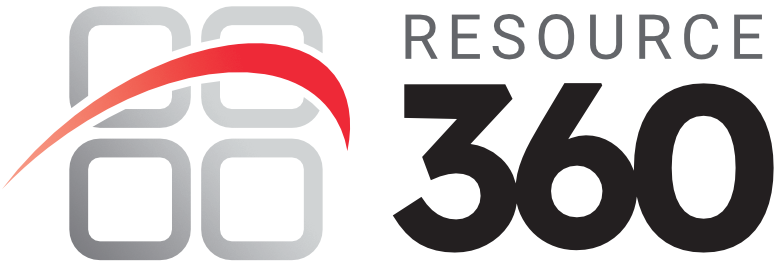Justin Biel, Contributing Editor Oracle NetSuite and Grow Wire
In 2016, when Brenda Budzinski joined Preferred Popcorn as the director of finance, the company had almost outgrown its financial systems. The Nebraska-based manufacturer of high-quality popcorn kernels had grown from a small company started by local farmers into a popcorn powerhouse. It now serves over 400 wholesale customers, many of them movie theaters, worldwide.
Early in her tenure, Budzinski learned the popcorn dynasty was doing all of its accounting on QuickBooks. Suddenly, she wondered if she’d bitten off more than she could chew.
“QuickBooks was never designed for a growing, innovative company,” Budzinski said.
She knew Preferred Popcorn needed a better system, having recently expanded to customers in over 70 countries and acquired a processing company that specialized in organic popcorn.
To get the company up to speed, she highlighted the problems in the current system. Then, she convinced the team to implement an enterprise resource planning (ERP) software to automate time-consuming tasks and make operations more efficient.
? Watch the video above for highlights from our chat with Preferred Popcorn’s Budzinski. Below, we’ll get into the details of our conversation.
The challenges Preferred Popcorn faced with QuickBooks
To understand what needed to change in Preferred Popcorn’s accounting department, Budzinski pinpointed the shortcomings in QuickBooks, its current operating system.
- Lack of real-time visibility into inventory
Preferred Popcorn has three separate processing locations in the U.S. and works with popcorn growers in Nebraska, Indiana, South Dakota, Iowa and Kansas. The company has massive storage requirements and inventory tracking needs for the many types of popcorn kernels it produces.
QuickBooks made it impossible for Budzinki to track total inventory at the company level, she said.
Additionally, tracing the movement of stock was labor-intensive: To comply with international food safety standards, Preferred Popcorn has to track its popcorn from the grower to the end customer using lot numbers. Then, they’re audited.
With QuickBooks, “we used to spend days tracking source documents for the auditors,” Budzinski said.
Inventory accuracy was another issue—it was frequently hard to tell which growers (e.g., the company’s Kansas grower) had which varieties of popcorn kernels (i.e., a high-moisture, organic kernel) in-stock.
“We really didn’t have enough information to do good reconciliations, so if there were errors, we simply didn’t know about them,” Budzinski said. “Inventory is an exercise you should do every day, but it was hard to achieve that in our QuickBooks system.”
- No customer relationship management (CRM)
Before they had a CRM system, Preferred Popcorn’s sales reps tracked their calls, emails and visits to customers, as well as customer histories and contact information, on spreadsheets. This method didn’t allow for easy sharing of customer information.
- No customization options
Budzinski knew QuickBooks, a standardized platform with no customization options, wouldn’t be able to evolve alongside Preferred Popcorn. Every year, the company adds new customers and kernel varieties, requiring tweaks to its software system. Besides the expansion into organic kernels, it also added a way for everyday consumers to buy kernels online in recent years.
“QuickBooks is designed to serve small businesses, but once you start growing and servicing more customers, you need more robust systems,” Budzinski said. “We needed better ways to communicate customer needs throughout the whole company.”
Choosing the right ERP: 5 reasons Preferred Popcorn chose NetSuite
Budzinski convinced Preferred Popcorn that it was time to make a change. She put together a team of key stakeholders and reviewed several ERP providers including NetSuite, Microsoft Dynamics, ProcessPro and Infor. In the end, NetSuite won out for several reasons:
1. More time for value-added tasks
NetSuite’s finance and accounting capabilities allowed the company to handle primary business tasks more efficiently with features such as bank reconciliations, purchase orders, re-order notifications, customer profitability reports and forecasting. By reducing the amount of time spent on repetitive processes, teams across Preferred Popcorn could work on more valuable tasks.
For example, “If you have sales teams making customer calls instead of doing Excel sales tickets, that’s more value-added,” Budzinski said.
2. Fast and easy implementation
Via SuiteSuccess, a process by which users implement NetSuite with pre-configured dashboards, reports and process flows for their specific industry, Preferred Popcorn implemented its new ERP system in 86 days. The integrated approach across teams such as sales, product and distribution helped Preferred Popcorn get up and running before its harvest deadline.
“Using SuiteSuccess was a really good choice,” Budzinski said. “I think it streamlined the go-live process.”
3. Better product tracking and insights
Inventory management is a complex process that’s essential to Preferred Popcorn’s business. Inventory management serves different purposes for each department, Budzinski explained. So, she made individual NetSuite dashboards for team members based on their roles, to show them only the data they care about most.
“The finance team looks at dollars, but the inventory manager looks at inventory movement. And the outside manager looks at [popcorn kernel] quantity and grain characteristics,” Budzinski said. “ERP functionalities like role-based dashboards, tailored to the individual roles, make this process possible.”
A holistic view of inventory has allowed stakeholders to see inventory levels across growers and automated the grain purchasing process, she added. NetSuite also makes it easier to track inventory for compliance: The team can easily enter a lot number when receiving, moving and shipping grain. Then when it comes time for an audit, they run simple reports in the system vs. chasing down documents to verify compliance.

Each member of Preferred Popcorn’s team can personalize their NetSuite dashboard to show KPIs they care about.
4. A multi-layer approach to customer relationship management
It’s important for Preferred Popcorn to record lots of data at the customer level, including the type of customer—distributor, movie theater, ready-to-eat—and details about each sales order, Budzinski said. Preferred Popcorn reps, plants and distribution centers rely on the information provided through NetSuite CRM to offer a high level of customer service.
The system not only helps with payment processing functions like purchase orders and invoice reminders but also helps track customer order preferences, such as whether a movie theater customer prefers more dry or more moist kernels.
Through what Budzinski called a “multi-layered approach” to customer service, “a sales rep can pull information to inquire about the last order … and cater interactions to the customer’s tastes.”

Preferred Popcorn’s sales reps track their customers’ specific kernel preferences in NetSuite.
5. A tailored ERP solution
Preferred Popcorn tailored several NetSuite functions for its specific business processes. For instance, the company created a way to automatically deliver a certificate of analysis, a document that customers need in order to verify that popcorn meets quality and testing standards for the industry. Additionally, Preferred Popcorn added a contract tracking feature that lets sales reps know when contracts end so they can reengage the customer.
Preferred Popcorn pops into high gear
According to Budzinski, NetSuite ERP shares an overall understanding of metrics to teams across Preferred Popcorn’s organization. For a company founded on putting customers first, these capabilities are crucial, she said.
The capabilities will no doubt come in handy as Preferred Popcorn continues its most recent expansion—into Amazon sales.
“With NetSuite, we have a common language to speak to our customer,” Budzinski said.

